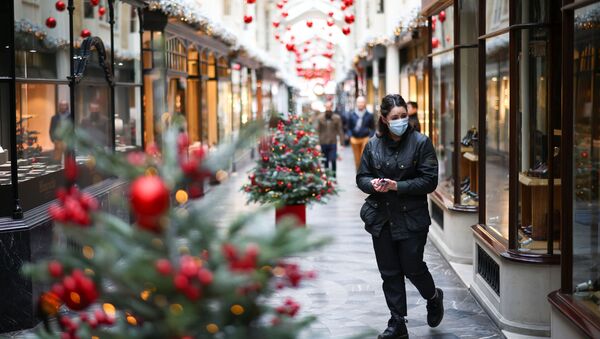Looking at what effect Covid has had on Europe’s Christmas markets, we spoke to Dr Cristina Galalae, a Lecturer in Marketing, at the University of Leicester.
Sputnik: Before we look at Christmas markets in the present day, what were Christmas markets of the past like, and how did they come to be?
Cristina Galalae: Christmas markets do have a very complex history. They were first recorded in Germany in the 14th century, and up until the Industrial Revolution, Christmas markets were spaces where people of different social classes would shop and interact. This means that inside Christmas markets, social hierarchies back then seemed less important. Following the Industrial Revolution, in fact, Christmas markets entered a period of significant changes, which of course reflected the social unrest and economic developments of the time. By the 19th century, the rise of department stores had made markets less profitable, and they also became more like rowdy funfairs and fell into disrepute. Then, again throughout the 20th century, consecutive German governments managed to reinvigorate the market and they were used as spaces to display and encourage both patriotism and social cohesion. They started travelling the world towards the end of the 20th century. We have the first German format [of] Christmas markets in the UK starting in Lincoln in 1982. Then we have the Birmingham market in 1997. Today, the German market format has been exported globally, and of course, not all Christmas markets are branded as German - although very often we have products and experiences that are associated with the German culture promoted in the market. The well-known glühwein is an example of the aesthetics of the market, think about the wooden hearts, is another example.
Sputnik: In the UK, most towns and cities will have something that resembles a Christmas market, how important are Christmas markets for the winter economy?
Cristina Galalae: Yes, I agree. Several towns and cities are organizing Christmas markets and they are very important for the winter economy and for supporting social cohesion. Christmas markets attract visitors from out of town, they create temporary jobs, they increase sales for local shops and cafes, and markets in the UK have also become travel destinations alongside European counterparts. So, this means that they support local tourism as well. If we were to assess the significance, we will see that it has been increasing over the last 35 years. They have grown in number, size, duration, footfall... If you think about the example of the Manchester market, this one has grown from a few stalls to over 180 in recent years, and the estimated visitor spending in Christmas markets between 2015 and 2017 has doubled.
Sputnik: 2020 has been a challenging year for almost every individual and business - with Christmas markets being no different. What challenges has Covid created for Christmas markets, and will we see them return post-pandemic?
Cristina Galalae: Yes, this year will be very different for Christmas markets as well. Most of them will be cancelled, as you might know, but some have moved to an online format, allowing people to support the local traders during the festive season. Bath and Oxford are some examples, but a few markets will still go ahead, such as Cardiff and Aberdeen, but they will follow stringent health and safety measures and they seem to emphasize activities that do not require a lot of interaction. What we also see is that the markets run by German organizers, which relied on international traders and hundreds of temporary workers, will of course be postponed until next year. Now on the topic of the future of Christmas markets and the post-pandemic return, myself and my colleague, Aurélie Bröckerhoff, with whom I've been researching Christmas markets for the last three years, believe that they will return once the pandemic ends and they will once again prove their resilience and ability to adapt to different cultural and historical circumstances. However, we also believe that some of the adaptations, such as online presence, promoting local over international traders, heightened safety measures, might become features of the Christmas market experience in the future.



